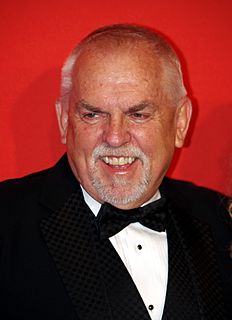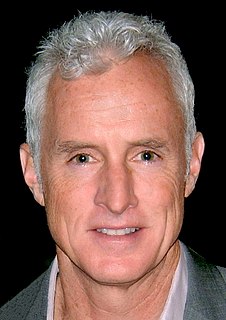A Quote by Rush Limbaugh
The American people have worn out their patience being told by their so-called bettors that you don't know how to live your lives the right way. We need to arrange things for you so you can do things better than you would do yourself.
Related Quotes
All over the US, there is a need to teach young people to, really, get them out in the backyard, building treehouses, fixing bicycles, because you become a better, more well-rounded, Renaissance personality if you actually know how to do things with your hands. If you can fix the screen door or replace your old garbage disposal, even change the tire on a car, a lot of people don't even know how to do that. We're literally running out of people who know how to do those things, the essential things like plumbing, carpentry, stone masonry, we're literally running out of them.
If [being confident stems from] a self-esteem issue, it's important to embrace the things you might define as so-called imperfections - because something that you might call an imperfection, someone else might find so amazing and so beautiful. It's all in how you embrace yourself, your faults, and your mistakes in life. There's no better way to learn and become a better person than to go through those moments.
Forgive yourself for believing things about yourself that are not true. Forgive yourself for believing that you were anything other than a child of God. Then, after forgiving yourself for believing the things you were told, forgive the people who told you. Forgive them not for what they said or did. Forgive them because they did not know any better.
Everyone needs some trial and error figuring out how it's gonna work for them. I could have gotten that out of the way a little sooner but I think you're totally right, the way I kind of think about things and the way I wanted to put myself out there doesn't fit the traditional side of things. I needed things like podcasts and YouTube and things that allow you to get it out there yourself and stand in the flames.
A great many things determine how people live, and money is not at the top of the list. Choices are always available. What you choose will depend on how you see things: yourself, your work, your right to express taste and desire and personality, your understanding of the love of God as expressed in His creation and order and harmony.
There seems to be something in the zeitgeist, and maybe it's a function of - I'm no analyst, nor am I a psychologist - when you look at things and say, What if I could go back and change things? I think we live in a world right now where people are asking those questions a lot. What if we could go back and change what we did? How would we change the way we handled things in the Middle East, and how would we change things with the banking industry, and how would we change economic and educational issues?
My advice to young people in the wrestling business would be to repeat such questions to yourself as: "How am I standing out? How am I getting recognized? How am I getting over?" And if you don't have definitive answers for doing those things, you are doing it wrong. It is, essentially, on them. There is no right way to do it, and that's one of the great things about this business because you can be creative. People who say they have it figured out are wrong.
The narratives we create in order to justify our actions and choices become in so many ways who we are. They are the things we say back to ourselves to explain our complicated lives. Perhaps the reason you've not yet been able to forgive yourself is that you're still invested in your self-loathing. Perhaps not forgiving yourself is the flip side of your stealing-this-now cycle. Would you be a better or worse person if you forgave yourself for the bad things you did? If you perpetually condemn yourself for being a liar and a thief, does that make you good?
Sometimes you walk into things, that, if you were paying attention, vibrationally, you would know right from the beginning that it wasn't what you are wanting. In most cases, your initial knee-jerk response was a pretty good indicator of how it was going to turn out later. The things that give most of you the most grief are those things that initially you had a feeling response about, but then you talked yourself out of it for one reason or another.
I used to read more when I was a kid than I do now. It was all sort of fuel for the fire to teach you how to think and how to make things and it informed the architecture that I was doing. It's better coming in with that history and that kind of knowledge and depth of understanding of humanity that is very important for building buildings - for understanding people and how they should live and how you could make your lives better and stuff like that.
Now we're in a very different economy. Throughout the late 1980s and 1990s American management started to do the right things. There was extraordinary investment in technology. The dominant questions now are less how to do it better, how to manage better, how to make the economy better, than how to have fuller and more meaningful lives. Because the irony is, now that we've come through this great transition, even though our organizations and our people are extraordinarily productive, many feel that the nonwork side of life is very thin.



































